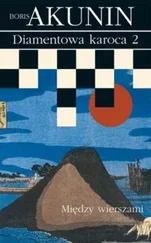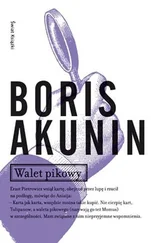‘Soon n-nobody will want to use horses for p-pulling their carriages,’ Mr Nameless told him. ‘They’ll all want automobiles l-like this, with an internal combustion engine. Then horses will be liberated from their heavy labour, and in g-gratitude for their service to humanity over the millennia, they will be s-set free to graze in the meadows. Well, p-perhaps the most beautiful and spirited will be kept for races and romantic d-drives by moonlight, but all the others will be retired with a p-pension.’
Well now, I don’t know about a pension, Senka thought. If horses aren’t needed any longer, they’ll just be slaughtered for their skins and meat, no one’s going to feed them out of the kindness of their hearts. But he didn’t try to argue with the engineer, he was curious to hear what would come next.
‘You see, Senya, the idea of a three-wheeled motor car for all kinds of terrain was the subject of my diploma last year at the Technical Institute . . .’
‘You mean you were still a student just last year?’ Senka asked in surprise. Erast Petrovich looked really old. Maybe thirty-five, or even more – his temples were all grey already.
‘No, I took the mechanical engineering course as an external student, in Boston. And now the time has come to make my idea a reality, to test it in practice.’
‘But what if it won’t go?’ asked Senka, admiring the gleaming copper lamp on the front of the machine.
‘Oh, no, it goes very well, but that’s not enough. I intend to set a record with my three-wheeler, by travelling all the way from Moscow to Paris. The start is set for the twenty-third of September, so there’s not much time left to prepare, just a little over two weeks. And it’s a difficult business, almost impossible in fact. A similar journey was attempted recently by Baron von Liebnitz, but his automobile wasn’t hardy enough for the Russian roads, and it fell apart. My “Flying Carpet” will survive them, though, because the three-wheel design is better suited to bad roads than a four-wheeler, and I shall prove it. And then, there’s this, look.’
Senka had never seen Erast Petrovich looking so lively. His eyes were usually cool and calm, but now they were sparkling, and his cheeks were flushed. Mr Nameless was quite unrecognisable.
‘Instead of the new-fangled pneumatic tyres, which are perfectly convenient for an asphalt street, but entirely inappropriate for our appalling roads, I have designed single-piece solid rubber tyres with steel wire.’
Senka prodded a black tyre. The pimpled, springy surface felt pleasant to the touch.
The design is based on the “Patent-Motorwagen” from the Benz factory, but the “Flying Carpet” is far more advanced! On his new “Velo” Herr Benz has only a three-horse-power motor and the gearwheel drive is attached to the rear axle, while I have moved it to the frame – look! – and I have a motor of almost one thousand cubic centimetres! That makes it possible to reach a speed of thirty versts an hour. And on an asphalt surface up to thirty-five! Perhaps even forty! Just imagine!’
Senka was infected by the engineer’s excitement. He sniffed at the seat, and it smelled of leather and kerosene. Very tasty!
‘And how do you ride on this carpet?’
‘Sit here. That’s it,’ said Erast Petrovich, delighted to explain, and Senka started swaying blissfully on the springy seat. ‘You’ll start moving in just a moment. It’s quite delightful, there’s nothing to compare it with. Only be careful, don’t rush. Put your right foot on the clutch pedal. Press it as far as it will go. Good. This is the ignition switch. Turn it. Do you hear that? The spark has ignited the fuel liquid. You open the valves with these levers. Well done. Now pull on the handbrake, to free the wheels. Engage the transmission –that’s this lever. Now slowly lift your foot off the clutch and at the same time pull the choke, which ...’
Senka took hold of the little metal stick that had the strange name ‘choke’ and pulled it towards himself. The self-propelled carriage suddenly darted forward.
‘A-a-agh!’ Senka yelled in terror and delight.
He got a sudden sinking feeling in his stomach, as if he was racing down an icy slide in a sleigh. The three-wheeler went shooting out through the gates of the shed, the wall of the house came towards it at high speed, and the next moment Senka’s chest crashed into the steering wheel. There was a loud clang and a jangle of broken glass, and the flight came to an end.
There were red bricks right in front of Senka’s face, with a green caterpillar crawling across them. His ears were ringing and his chest hurt, but no bones seemed to be broken.
Senka heard leisurely footsteps approaching from behind. He saw that the glass was broken on one dial and it had completely come away from another, and he pulled his head down into his chest: Beat me, Erast Petrovich, beat me within an inch of my life – even that’s too good for a bonehead like me.
‘. . . which regulates the flow of fuel, and so it should be pulled very gently’, said Mr Nameless, continuing with his explanation as if he had not even been interrupted. ‘You pulled it too hard, Senya.’
Senka hung his head and got out. When he saw the flattened lamp, which had been so smart and shiny only a few moments ago, he sobbed out loud. What a disaster.
‘Never mind,’ the engineer reassured him, squatting down on his haunches. ‘In automobilism breakages are an everyday event. We’ll fix everything this very moment. Be so kind, Senya, as to bring me the box of tools. Will you help me? It’s quite easy to remove a dashboard with two people. If you only knew how badly I need an assistant.’
‘What about the sensei?’ asked Senka, stopping just as he was about to dash over to the shed. ‘Doesn’t he help you?’
‘Masa is a conservative and a staunch opponent of progress,’ Erast Petrovich said with a sigh as he pulled on a pair of leather gloves.
Well, that was true enough. The engineer and Masa had been rowing over progress almost every day.
If Erast Petrovich had just read an article in the morning newspaper – say, about the opening of a railway line to the region beyond Lake Baikal – and he said: Look at this splendid news for the population of Siberia. They used to spend an entire month on the journey from Irkutsk to Chita, but now it only takes a day. They’ve been given a present of an entire month! There you are, use the time for whatever you like! That is the true meaning of progress – reducing the unnecessary waste of time and effort! Then the Japanese would say to him: They haven’t been given a month of life, the time’s been taken away from them. The people in this Irkutsk of yours never used to leave home except on important business, but now they’ll start spreading out across the face of the earth. That would be fine, if they did it thoughtfully, measuring out the earth with their steps, scrambling up the mountains and swimming across the rivers. But they’ll sit down on a comfortable seat and sniff a couple of times, and that’ll be all there is to their journey. Before, when a man went travelling, he understood that life itself is a journey, but now he’ll think that life is a soft seat in a railway carriage. People used to be strong and sinewy, but soon now they’ll all be weak and fat. Fat –that’s what this progress of yours is.
Then Mr Nameless would get angry. You’re distorting things, he’d say. Fat? So let there be fat, excellent! And by the way, fat is the most valuable substance in the human body, a reserve of energy and strength for times of stress. We just need to avoid accumulating fat in certain areas of the social organism, it should be distributed equally, that’s the reason why social progress or ‘social evolution’ exists.
Читать дальше











